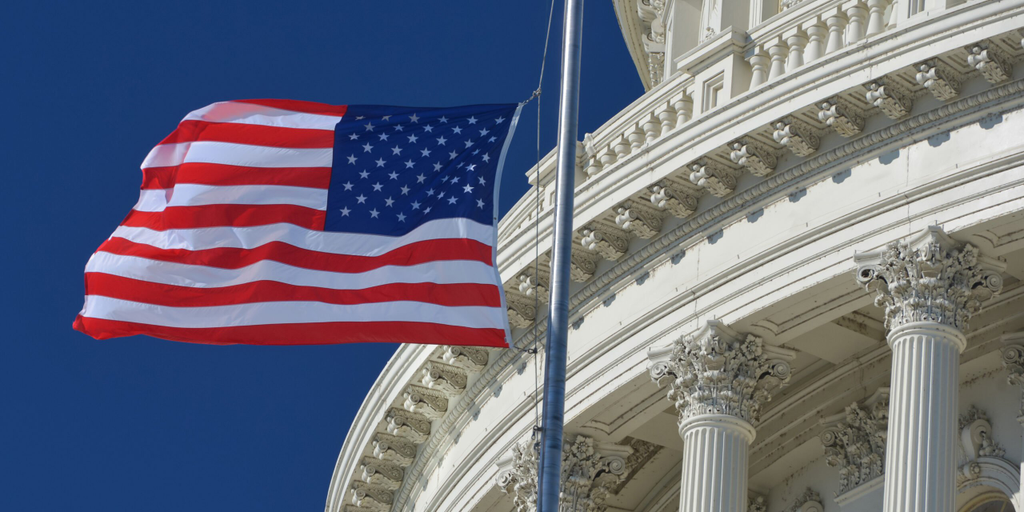

Lawmakers voted Wednesday in favor of a cryptocurrency market rescue bill that could have far-reaching implications for the U.S. regulatory landscape for digital assets.
The bill, called the Financial Innovation and Technology for the 21st Century Act (FIT21), was approved by a vote of 279 to 136 in the House. While 208 House Republicans voted in favor of the bill, 71 Democratic lawmakers also voted in favor of FIT21. All but three of the 217 Republican House members voted in favor of FIT21, and about a third of Democratic lawmakers also supported the bill.
The bipartisan push behind FIT21 epitomizes the changing attitudes toward cryptocurrencies on Capitol Hill. Just last week, a bill to roll back the U.S. Securities and Exchange Commission’s (SEC) cryptocurrency custody rules for banks passed both the House and Senate and received support from prominent lawmakers such as Senate Majority Leader Chuck Schumer (D-NY).
The bill passed by the House of Representatives on Wednesday creates a federal framework for regulating digital assets, establishing jurisdiction between the Commodity Futures Trading Commission (CFTC) and the SEC. The bill, which would have taken steps such as giving issuers the ability to self-certify their assets as digital products, was skewered by SEC Chairman Gary Gensler on Wednesday.
Among those who expressed dissatisfaction with the bill was President Joe Biden, who said in written remarks that it lacked sufficient protection for investors. Nonetheless, in his Wednesday letter, Biden called for a “comprehensive and balanced regulatory framework” for digital assets, suggesting the status quo currently falls short.
FIT21, which reduces the SEC’s regulatory scope, gives the CFTC exclusive regulatory authority over digital asset products. The bill provides criteria for determining that status based on a project’s level of decentralization by examining factors such as the amount of token supply owned by the party or the susceptibility of the blockchain to influence by a single party.
Hours before the bill was scheduled for a vote in the House, chamber members debated the merits of FIT21. House Financial Services Committee (HSFC) Chairman Patrick McHenry (R-SC), a bill co-sponsor, said: “The SEC and CFTC are currently fighting a food fight for control of this asset class.”
“They have created an impossible situation where the same company is subject to competing and contradictory enforcement actions by two different agencies, leaving consumers and innovators behind,” he continued. “FIT21 solves this problem.”
But several Democratic lawmakers, including Rep. Maxine Waters, criticized the bill. “This bill still provides key exemptions to important securities laws,” she said. She later said that cryptocurrency companies were “refusing to register” and that the bill would “exonerate” them and “give them the opportunity to operate without regulation.”
“How can this happen?” She said.
Brad Sherman (D-CA) said changing the definition of securities under the bill would serve as a “dagger in the $100 trillion market that fuels our economy.” He also raised concerns that cryptocurrency users could evade taxes or sanctions if the technology is policed with a light touch.
Meanwhile, Sean Casten (D-IL) pointed to reports of terrorist groups’ use of cryptocurrencies and trafficking in child sexual abuse material (CSAM). “Bad guys love cryptocurrencies,” he said.
The FIT21 law does not address the use of cryptocurrencies by terrorists, foreign enemies, or criminals.
I have introduced several amendments to correct this problem, but House Republicans have refused to bring them up for a vote. pic.twitter.com/JAPjS1B0wf
— Rep. Sean Casten (@RepCasten) May 22, 2024
Clarifying authority between the CFTC and SEC has been a long-awaited hope within the cryptocurrency industry, as advocates say existing rules are unclear. And FIT21 covers several areas within cryptocurrency, including handling trading platforms, decentralized finance, and ways for developers to fund their projects.
The passage of FIT21 comes after years of debate on Capitol Hill over other cryptocurrency bills, such as stablecoin regulatory measures. House Republicans last year established A digital assets subcommittee with the explicit goal of creating clearer crypto rules.
Rep. Warren Davidson (R-OH), whom McHenry introduced as a cryptocurrency “OG,” said the cryptocurrency bill was long overdue after six years of working on other cryptocurrency measures. Davidson said he began working on cryptocurrency rules in 2018, starting with a token taxonomy.
“We have been pushing innovation and investment in offshore digital asset projects for too long because Congress has consistently failed to provide the clarity we need,” he said. “We finally have the opportunity to end this trend and firmly establish ourselves as an industry leader.”
As the bill moves next door to the Democratic-controlled Senate, it could face insurmountable obstacles before it reaches Biden’s desk. However, cryptocurrency-friendly Senator Cynthia Lummis (R-WY) took to Twitter (aka X) to suggest that lawmakers there could support FIT21 with bipartisan support.
“There are bipartisan majorities in favor of cryptocurrencies in both houses of Congress,” she said. “The future is very bright.”
Edited by Guillermo Jimenez and Andrew Hayward
daily report newsletter
Start your day today with top news stories, original features, podcasts, videos and more.


